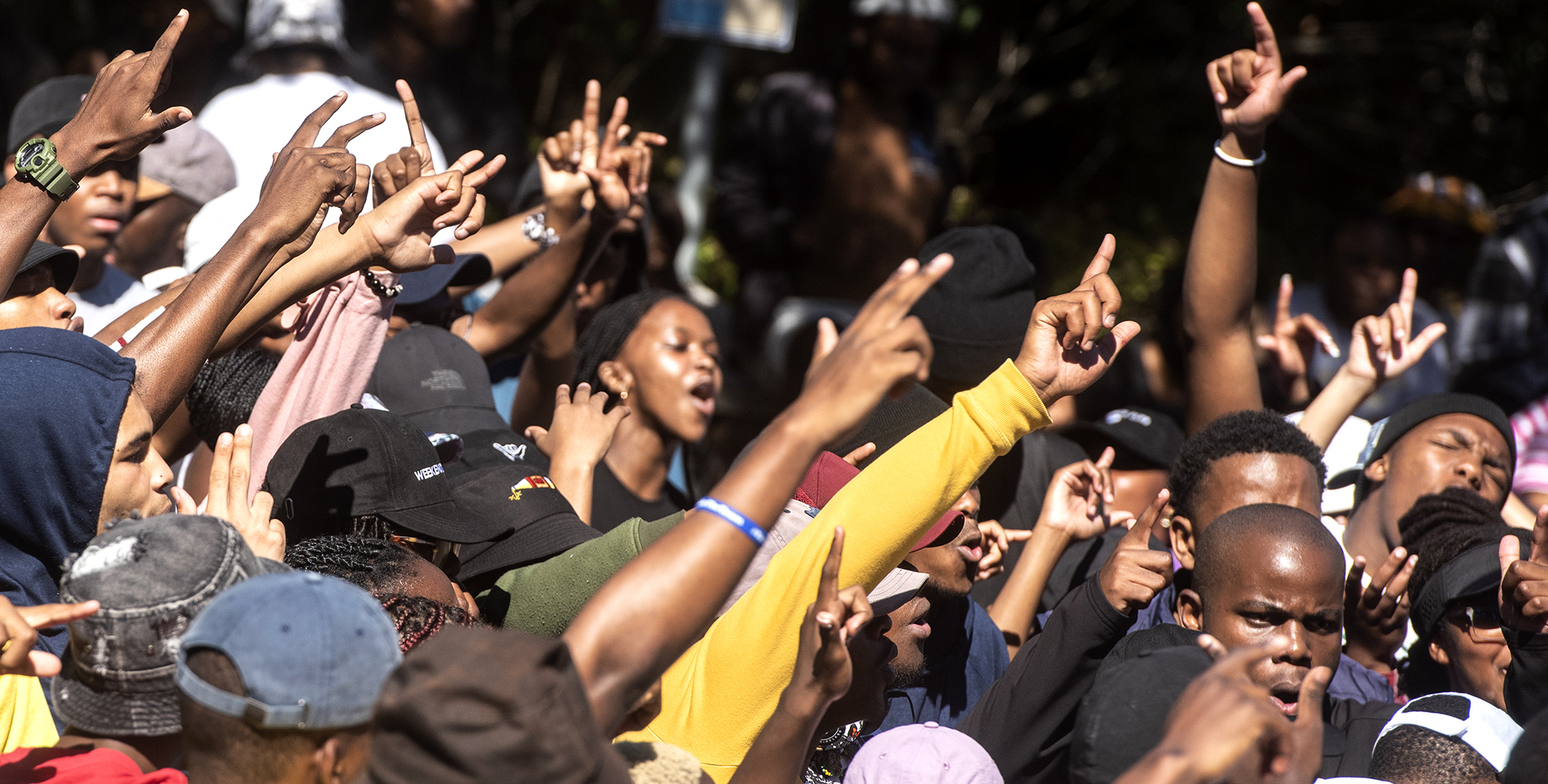Annelisa Nkqubezelo, a former journalism student at Walter Sisulu University, no longer includes her university qualification in her résumé when applying for jobs.
She told Daily Maverick that her qualification was as good as “non-existent”.
When she completed her degree in 2015 she was not awarded her journalism certificate because she owed R130,000.
“I only have [the completion] letter which is not even recognised,” Nkqubezelo said.
Walter Sisulu University spokesperson Yonela Tukwayo confirmed that the university withholds the certificates of graduates with outstanding debt.
“Graduate debt is a national crisis; universities are sitting on huge amounts that are owned by students and graduates,” said Tukwayo.
She said most students and graduates at the university were from disadvantaged backgrounds and that current and past students owed more than R500-million.
The university needed this money, she said, to improve teaching, learning facilities, living spaces and infrastructure — and for the general upkeep of the university.
“Whilst we have significantly improved our infrastructure in recent years, there is still much to be done.”
Tukwayo said thousands of graduates had benefited from the debt clearance campaign run by the university’s Convocation Executive Committee (ConvEx).
“ConvEx has raised millions and millions of rands, which has cleared their debts and paved the way for graduates to get their certificates,” she said.
National picture
The student debt at South Africa’s public universities totalled R19-billion at the end of 2023.
In January, Higher Education Minister Blade Nzimande announced R3.8-billion funding for the “missing middle” through a Comprehensive Student Funding Model.
In April, Nzimande confirmed that most universities did not award certificates to graduates with outstanding fees.
 (Source: Universities and Nzimande’s reply in Parliament)
(Source: Universities and Nzimande’s reply in Parliament)
The following universities confirmed that graduates who owed outstanding fees were allowed to participate in their graduation ceremonies, but did not receive their certificates: Walter Sisulu University, University of the Free State, University of Mpumalanga, University of the Witwatersrand, University of the Western Cape, Stellenbosch University, University of Johannesburg, Cape Peninsula University of Technology, University of Pretoria, Rhodes University and Vaal University of Technology.
Sol Plaatje University spokesperson Kashini Maistry said they issued certificates to graduates who owed fees, to enable them to secure employment, which would help them to pay off their debts.
“This practice aligns with the university’s commitment to fostering an inclusive and equitable educational environment and promotion of social justice. The policy is subject to regular review to ensure it meets the institution’s objectives,” said Maistry.
She said they had instituted measures to ensure the recovery of student debt.
Debt repayment options
Mala Suriah, the CEO of Fundi, a company specialising in education finance and fund management solutions, said many tertiary institutions were taking a two-pronged approach to student debt:
- Raising money themselves to assist indebted “missing middle” students; and
- Using debt collectors to try to recover outstanding fees.
“Both stakeholders [students and tertiary institutions] essentially find themselves in an impossible situation. This has seen universities start to take more radical steps to prevent debt from being incurred upfront,” she said.
She said graduates were trapped without the credentials needed to apply for jobs that would enable them to repay their debt.
“Graduates who are unable to enter the formal workforce can often become burdens on their families and in their communities — moving back home to prevent accumulation of more debt. Being back at home and unemployed, however, can often make it harder to remain motivated about finding a job or a way to repay what they owe,” she said.
“Perhaps the biggest misperception facing these students and their parents, however, is that there are no alternative options available to them.”
She said by consolidating the debt owed to the institution and obtaining a loan to pay it off, students could still receive their qualification, use this to apply for a job and start working to repay what they owed. DM




 (Source: Universities and Nzimande’s reply in Parliament)
(Source: Universities and Nzimande’s reply in Parliament)